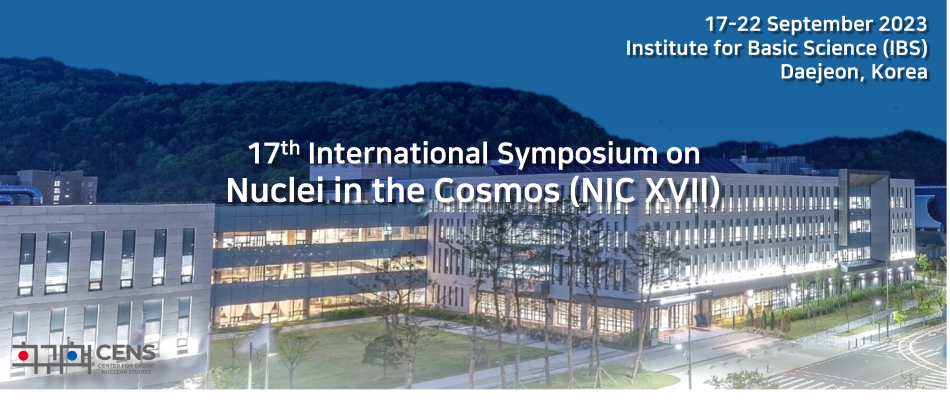Speaker
Description
The study of the $^{26}$Si($\alpha$,$p$)$^{29}$P reaction rate is essential for understanding X-ray burst phenomena. It is believed that the heavy elements up to the Sn-Sb-Te region can be synthesized during the burst. Since 26Si is considered to be a waiting point during the burst, the $^{26}$Si($\alpha$,$p$)$^{29}$P reaction rate is believed to be one of the most significant reactions that affects nucleosynthesis. To study the $^{26}$Si($\alpha$,$p$)$^{29}$P reaction rate, the properties of energy levels in the $^{30}$S were studied through the $^{26}$Si($\alpha$,$\alpha$)$^{26}$Si reaction measurement. The radioactive 26Si beam was produced through the $^{3}$He($^{24}$Mg,$n$)$^{26}$Si reaction at the Center for the Nuclear Study Radioactive Ion Beam Separator (CRIB) of the University of Tokyo. By adopting the thick target method, the resonant states were observed over the wide energy range of E$_{x}$ = 12 - 16 MeV for the first time. By comparing the empirical excitation function and theoretical calculation results with the SAMMY8 code, the properties of $^{30}$S energy levels were constrained. The astrophysical $^{26}$Si($\alpha$,$p$)$^{29}$P reaction rate was updated accordingly. The details of the results will be discussed.

